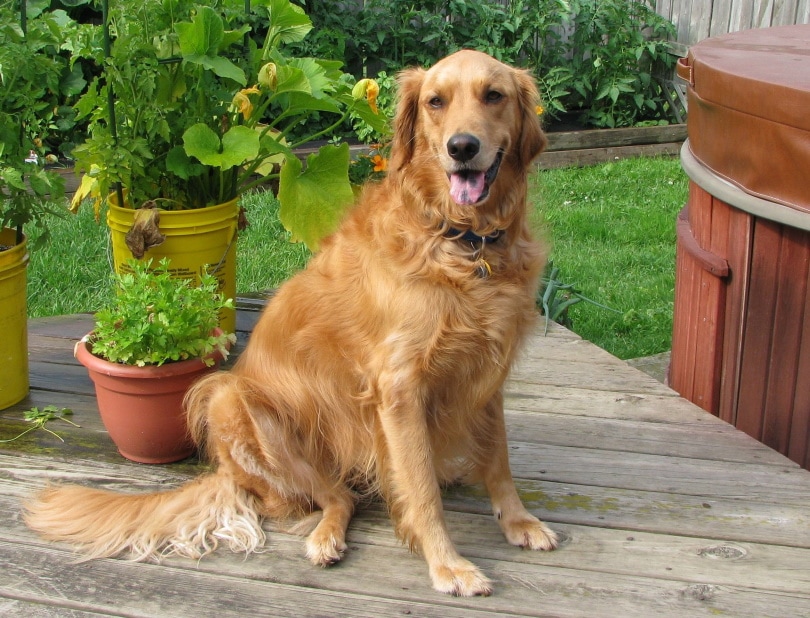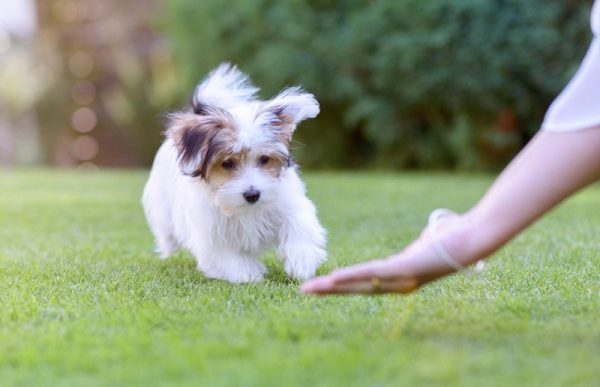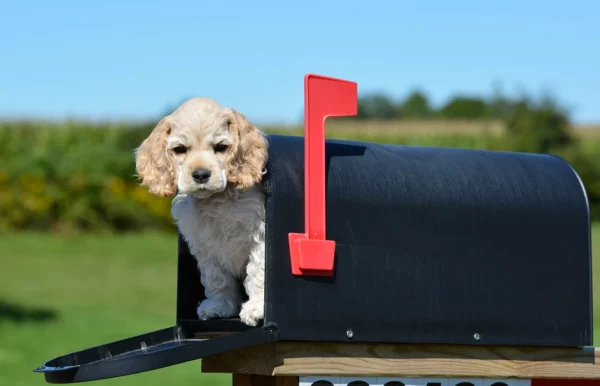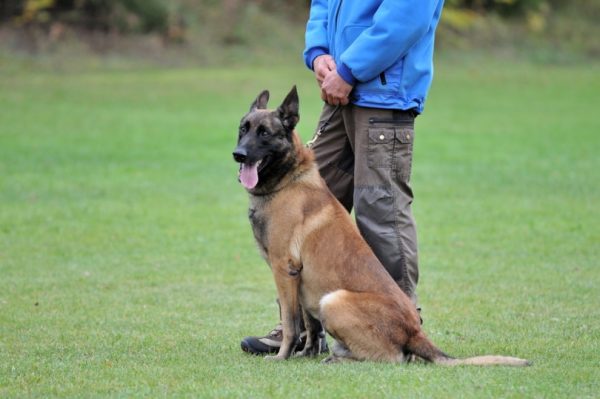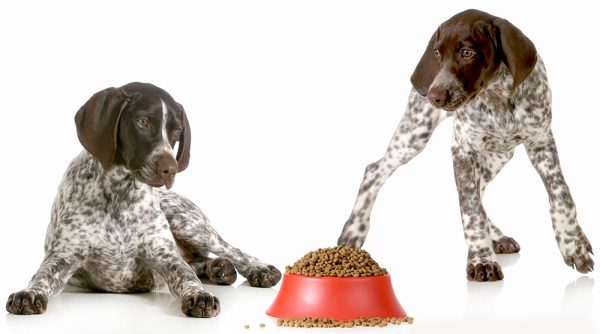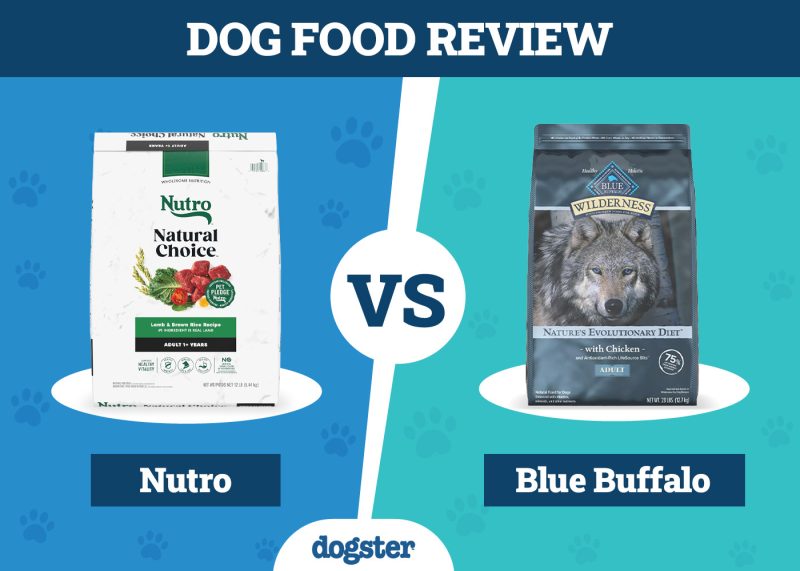In this article
View 2 More +Perhaps you’ve had a run-in with an aggressive Golden Retriever or are just curious about the idea. How on earth does one of the most lovable and gentle dogs out there become aggressive?
Unfortunately, it is not unheard of. Golden Retrievers are just as likely to show aggressive behavior as any other animal (or human) out there.
We look at a few of the factors that can cause aggression in Golden Retrievers and a few of the common warning signs. We also look briefly at the methods that you can use to help prevent aggression in your Golden.

The 9 Common Causes of Aggression
It might be hard to imagine if you’ve never seen an aggressive Golden Retriever firsthand. But it’s quite possible, particularly when the dog has been mistreated in some way.
1. Abuse
This is an unfortunate truth. If a dog, regardless of the breed, has been physically and/or mentally abused, they are much more likely to be aggressive. Dogs that have only known abuse will have the expectation that all people will hurt them, so it’s no surprise that they will react defensively and aggressively.
2. Neglect
Neglect is absolutely a form of abuse. It can be withdrawing any kind of love or affection or even just attention from a dog, but it can also include not providing the dog with the basic necessities of life, such as food and water.
When a Golden has been malnourished, they start to exhibit food-guarding behavior, which includes growling and biting at anyone or anything while they are eating.

3. Fear/Anxiety
Fear of a new situation or a previous traumatic experience can cause fear aggression, which is a defensive behavior. This is considered one of the most common causes of aggression in most dogs.
4. Illness or Pain
Dogs that are in pain or are sick can react with aggression. They feel vulnerable, and if they are in pain or some form of discomfort, they can lash out in a protective or defensive reaction.
If you suspect your dog is in pain or is suffering from an illness, you should contact your vet directly for an assessment. They can provide you with more information and a care plan.
If you need to speak with a vet but can't get to one, head over to PangoVet. It's our online service where you can talk to a vet online and get the advice you need for your pet — all at an affordable price!

5. Specific Illnesses
This is different from a dog feeling sick. There are certain illnesses that can cause aggression. The most famous is rabies, but hormonal imbalances or metabolic and genetic disorders can also cause aggression, such as hypothyroidism, neoplasia, and psychomotor epilepsy, to name a few.
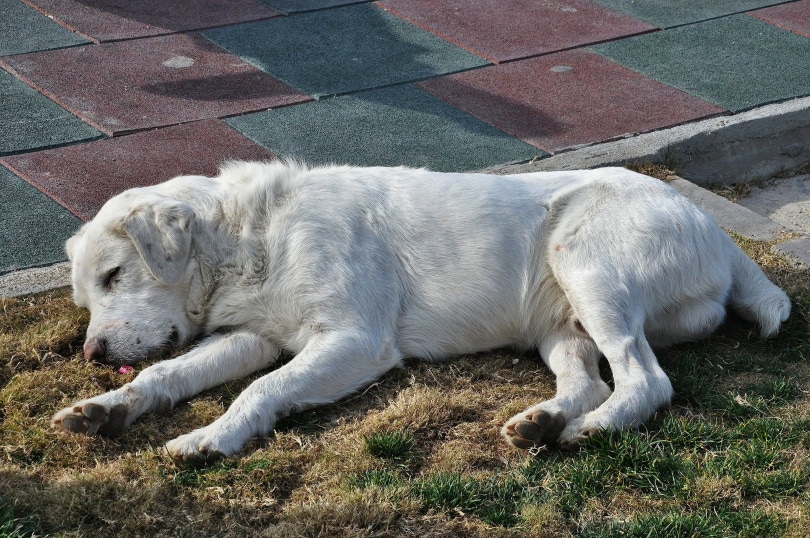
6. Lack of Physical Exercise
Dogs that aren’t being given the opportunity to run or even walk to burn off their excess energy can become destructive. This kind of reaction is essentially a cry for help but can definitely become a habit if the problem isn’t addressed.
7. Danger or Threat
All dogs will react aggressively if they feel threatened or feel the need to protect their territory, including their families. If someone who is not a part of your family or another dog is acting threateningly, don’t be surprised to find your Golden growling at them. This is particularly true for a mother dog protecting her puppies.
8. Lack of Socialization
Dogs that weren’t socialized well as puppies or trained correctly can become aggressive adult dogs. A dog without the proper socialization will be nervous and fearful in new situations and around new people.
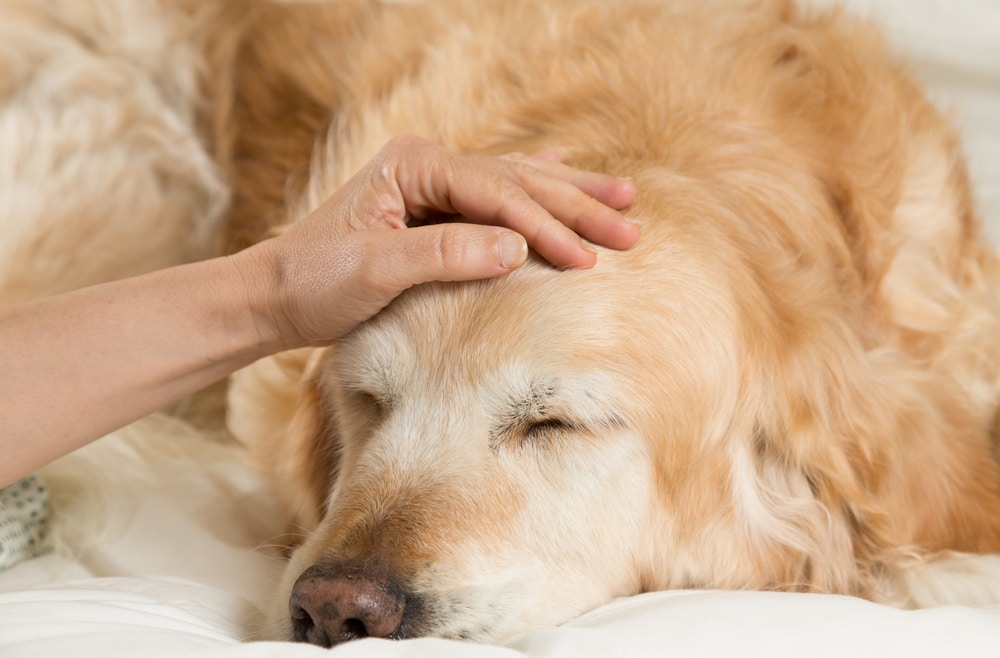
9. Irresponsible Breeding
Backyard breeders and puppy mills are a part of the neglect/abuse area of things. But they can also breed undesirable traits into their puppies. So, if the parents or grandparents had aggressive natures, this might be passed down to the next generations.

The Warning Signs
It is helpful to recognize the warning signs before a dog acts out with aggression. A few of these will be obvious, but most signs can be overlooked or misunderstood. Body language that your Golden might display, in order of the aggression ramping up, include:
- Squinting, turning head or body away from the situation, and avoidance of eye contact
- Licking of the lips or yawning
- Flattening of the ears tightly against the head
- Crouching down and tucking the tail under the body
- Freezing in place and stiffening of the body
- Growling
- Snapping
- Biting
These are all signs that a bite might be imminent, so proceed with caution if your dog is exhibiting these signs.
The 6 Tips for Preventing Aggression
Starting when they are puppies is the best time to ensure that your Golden won’t be an aggressive adult. That said, many of these tips can be applied to almost any dog at any age.

1. Socialization
Just as improper socialization can lead to eventual aggression, the right socialization can prevent it. When your puppy or dog is introduced to as many environments, situations, people, and animals as possible, they gradually learn to not be afraid of new things.
2. Use Positive Reinforcement
Never punish your dog, as this can only cause them to fear you and they also don’t really understand what they did wrong. Using praise, pets, and treats when your dog does something right is the best method for training all breeds. You can always turn on your veterinarian for an advice on the best training approach for your dog.
If you need to speak with a vet but can't get to one, head over to PangoVet. It's our online service where you can talk to a vet online and get the advice you need for your pet — all at an affordable price!

3. Find a Good Breeder
The genetics of the dog is important and so is how the breeder raises the puppies. This is where socialization begins and where the puppy’s first relationships begin.
4. Patience and Love
This is important for every single dog out there but is particularly true for rescue dogs. If you have a Golden that has been abused before coming home with you, you’ll need to be especially patient and loving with these dogs. Rescue dogs will gradually learn to trust again.
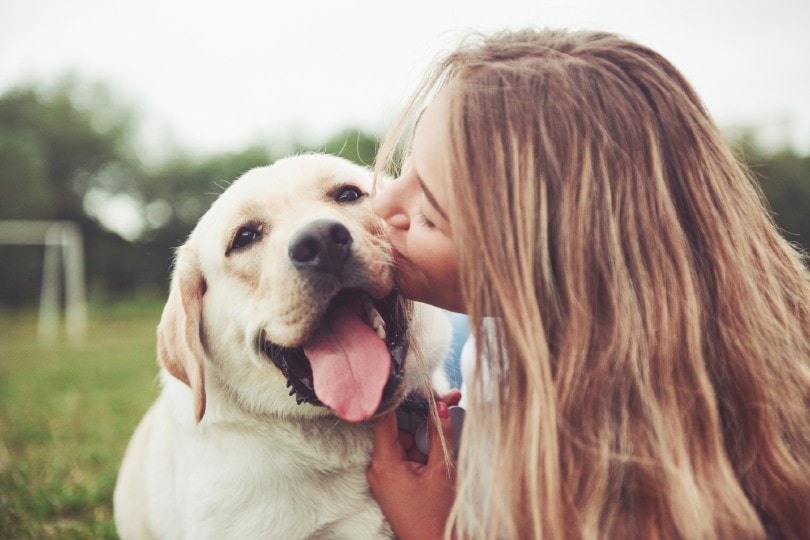
5. Prevent the Triggers
The most obvious thing that you can do is to try to stop your Golden’s triggers from occurring around them. If you have a handle on what causes an aggressive reaction from your dog, try to fix it. But first take your dog to the vet to rule out any injury or illness.
If your Golden is triggered by other dogs, you can redirect your dog’s attention away from the situation. However, remember to not use treats, toys, or praise, or your dog will think that aggressiveness is a good thing because you’re rewarding the behavior.
6. Exercise
Ensure that your Golden is receiving plenty of exercise. They are energetic dogs that need to engage in many types of activities and training, which effectively reduces aggressive behavior. You should also look into enrolling your dog in obedience classes or even agility trials and dock diving. These dogs are hard-working, and if you give them a job to do, they are less likely to become aggressive.
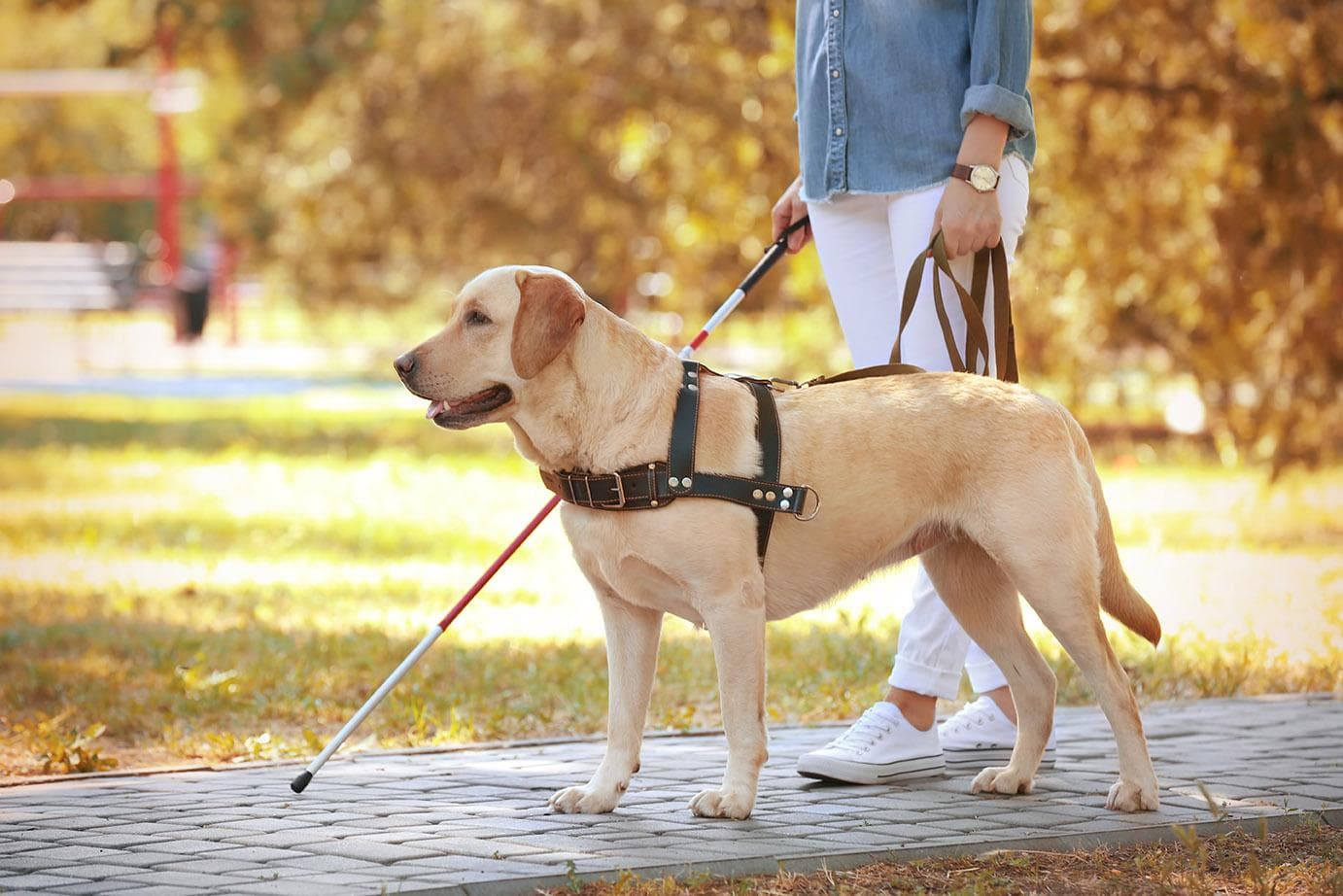

Summary
We all know how sweet and happy Golden Retrievers are. They are the fourth most intelligent dog breed (behind the Border Collie, Poodle, and German Shepherd), and they are highly sensitive dogs. So, while it isn’t common to run into an aggressive Golden, it is always a possibility.
The first sign of any kind of aggression needs to be addressed, even if it means talking to an animal behaviorist or vet. You want to ensure that it isn’t a health issue, or if it’s stemming from something else, it needs to be nipped in the bud.
Keep in mind that if you have a happy and confident dog, it’s less likely that they will be aggressive. Just spend time with your Golden and give them plenty of love and attention, and that dog will absolutely be devoted and confident and unquestionably, a happy and loving companion!
- See also: Corgi Golden Retriever Mix
Featured Image Credit: Piqsels
